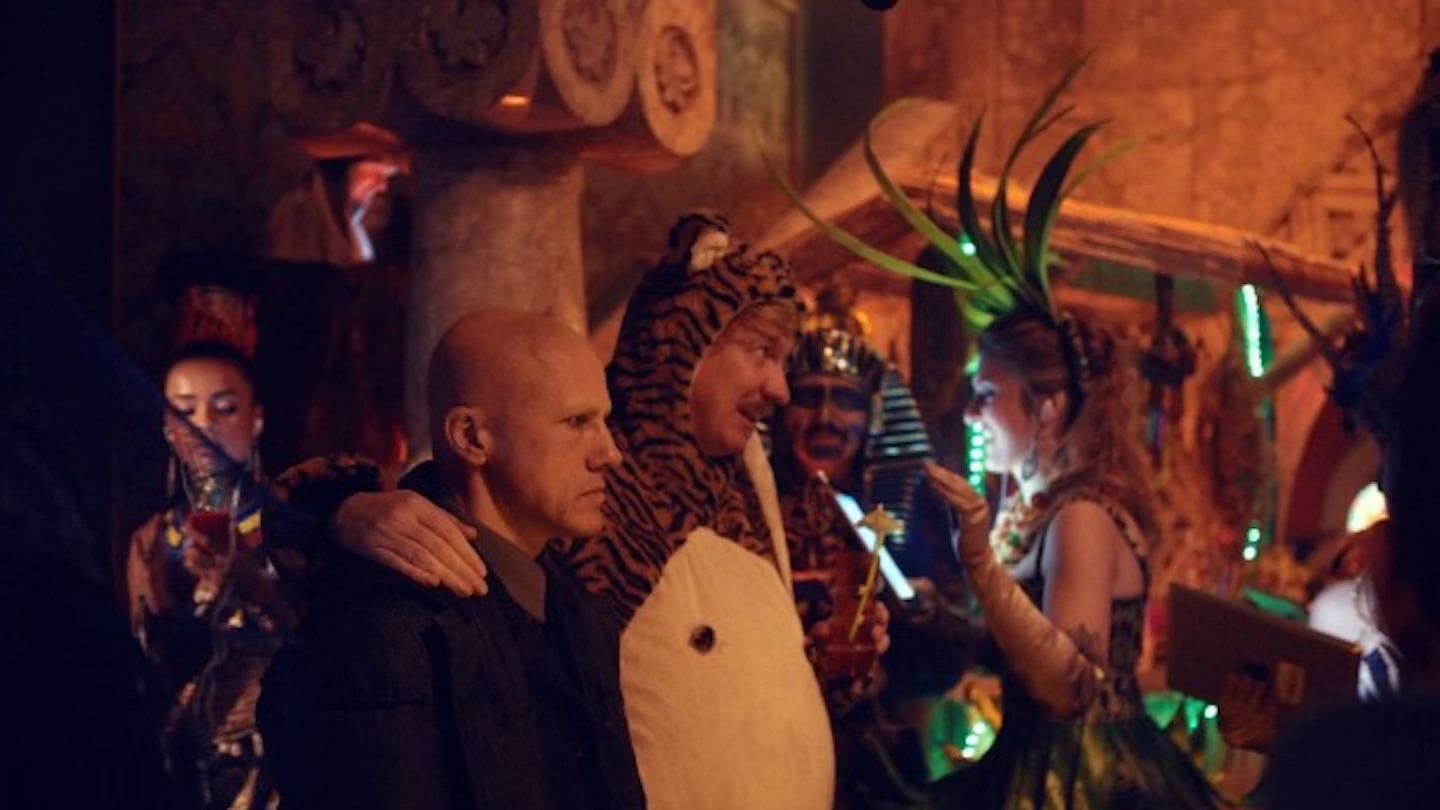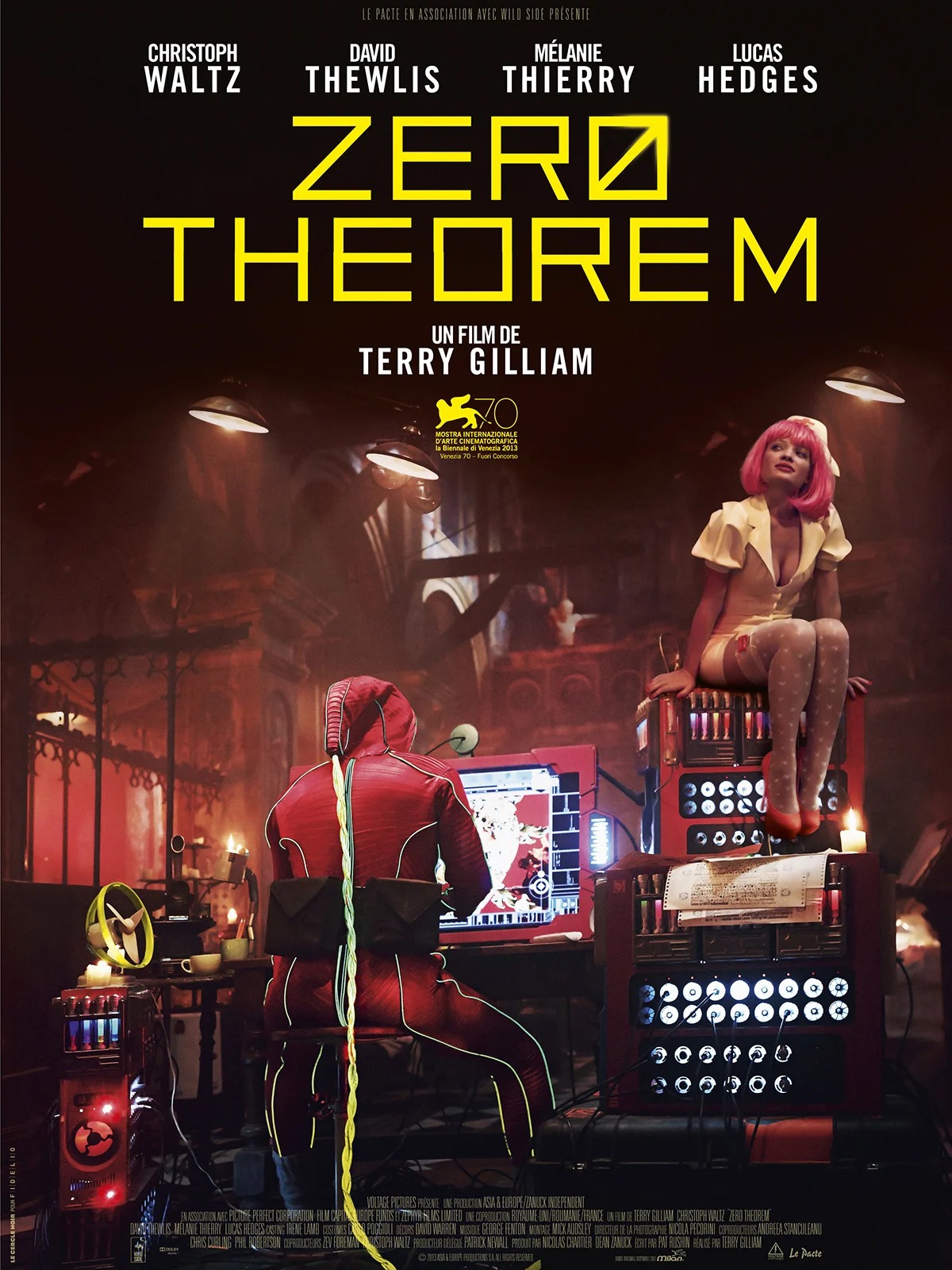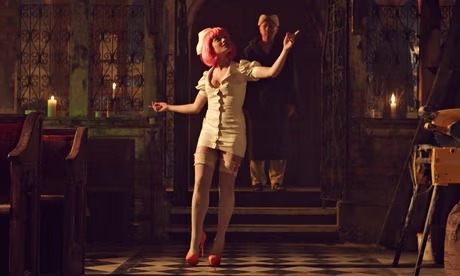The Zero Theorem (2013)

The Zero Theorem is a dystopian science fiction film directed by Terry Gilliam, released in 2013. The film is known for its surreal and visually striking depiction of a future world dominated by technology and existential angst, continuing Gilliam’s exploration of themes like identity, purpose, and the absurdity of existence.

Plot Overview: The story centers on Qohen Leth (Christoph Waltz), an eccentric and reclusive computer genius who works as a programmer for a mysterious corporation known as Mancom. Qohen is obsessed with discovering the meaning of life, and his isolation is driven by a desperate desire to receive a phone call that he believes will reveal his purpose.

Qohen’s life takes a turn when he is assigned a highly secretive and complex project by his boss, known only as “Management” (Matt Damon). The project, called “The Zero Theorem,” is a mathematical formula that aims to prove that life is meaningless and that everything ultimately adds up to nothing.
As Qohen delves deeper into the project, his already fragile mental state begins to unravel.

He is visited by a variety of characters who challenge his worldview, including Bainsley (Mélanie Thierry), a seductive virtual reality companion, and Bob (Lucas Hedges), the rebellious and tech-savvy son of Management. These interactions force Qohen to confront his loneliness, fears, and the possibility that the answers he seeks may not exist.
The film is a visual feast, with Gilliam’s signature blend of dark humor, eccentric characters, and elaborate production design. The futuristic world of The Zero Theorem is filled with neon colors, surreal imagery, and a constant bombardment of information, reflecting the chaotic and alienating nature of the society in which Qohen lives.
Themes and Style: The Zero Theorem explores themes of existentialism, the search for meaning, and the impact of technology on human identity. The film questions the nature of reality and the purpose of life in a world where individuals are increasingly disconnected from each other and themselves.
Terry Gilliam’s direction is characterized by his distinctive visual style, combining elements of science fiction, surrealism, and satire. The film’s setting is a dystopian future reminiscent of Gilliam’s earlier works like Brazil (1985), where bureaucracy, technology, and consumerism dominate society.
Impact and Reception: The Zero Theorem received mixed reviews from critics. While some praised the film for its ambitious ideas, visual creativity, and Christoph Waltz’s performance, others felt that the narrative was convoluted and the themes were not fully realized. Despite the divided critical response, the film has gained a cult following for its thought-provoking content and Gilliam’s unique approach to storytelling.
The movie stands out as a challenging and introspective piece of cinema, inviting viewers to reflect on the complexities of existence and the quest for meaning in an increasingly digital and disconnected world.
Overall, The Zero Theorem (2013) is a visually arresting and philosophically rich film that offers a darkly humorous and surreal exploration of the human condition, making it a distinctive entry in the science fiction genre and a thought-provoking experience for fans of Terry Gilliam’s work.











